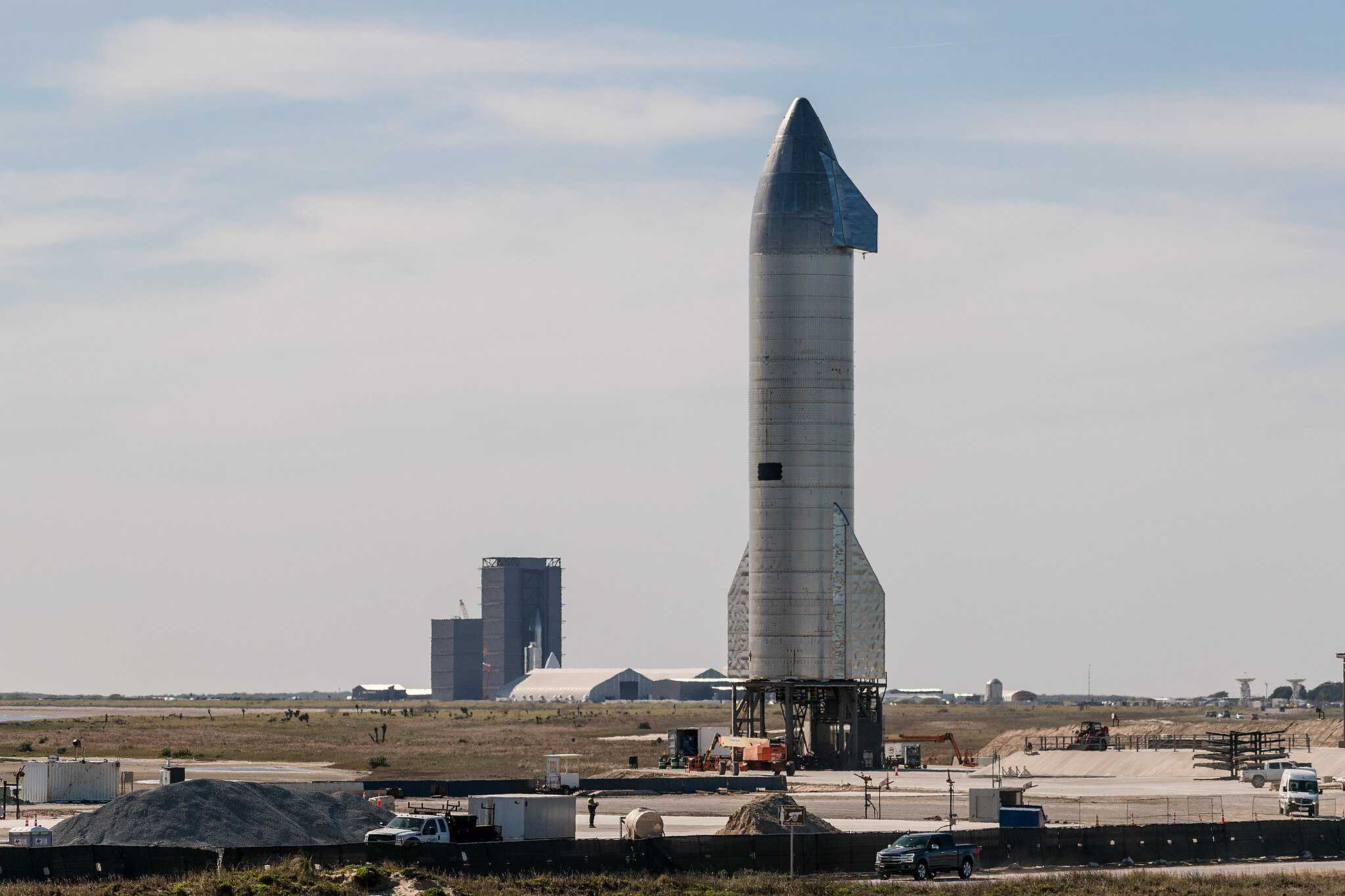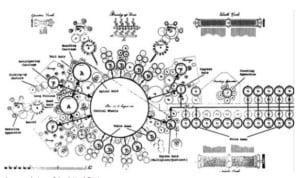In 1957, the Soviet Union launched Sputnik, the first man-made satellite in history to orbit the planet. This also became the unofficial start of the space race that would result in incredible technological advancements.
Since then, we’ve seen launch vehicles the size of skyscrapers built around the world. Leading the modern space race, SpaceX’s Starship is poised to become the most powerful rocket in the world. To learn more about this incredible feat and the spacecraft that paved the way through history, keep reading.
#1: Starship – 330,000 Lbs Payload
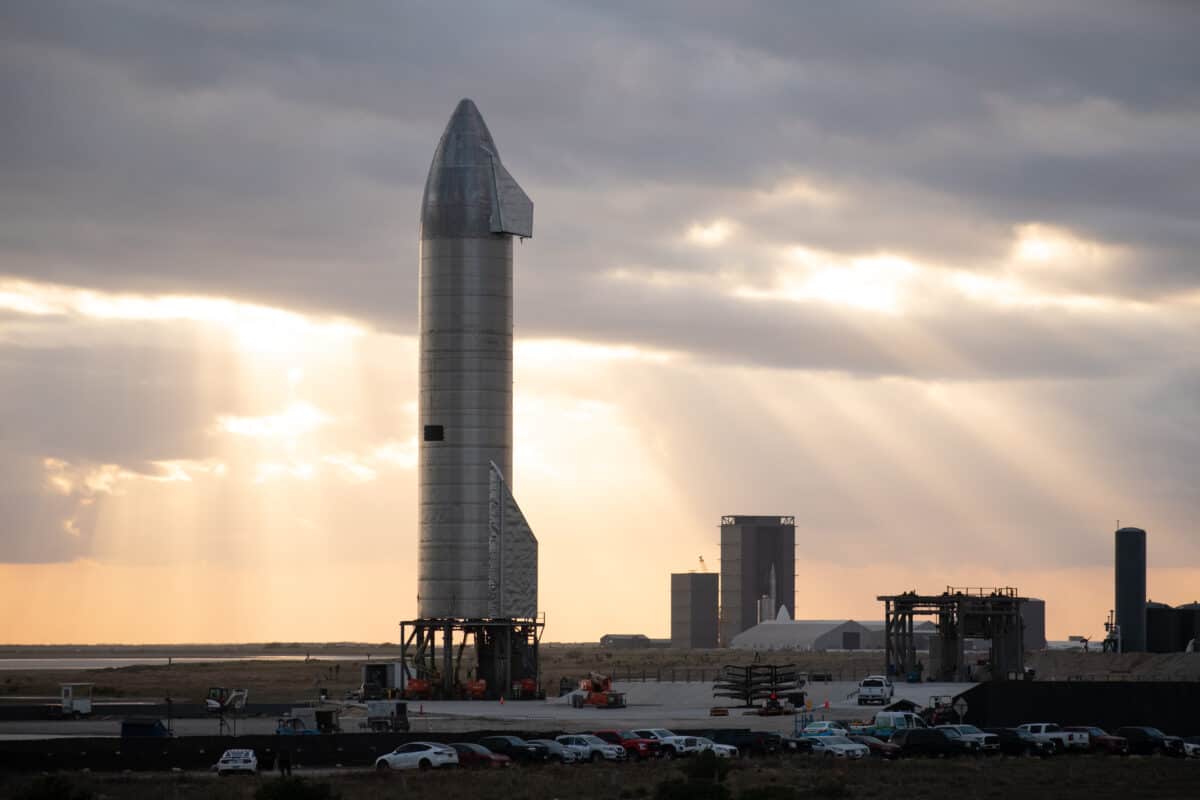
Since its inception, SpaceX has held one goal at its core: to colonize Mars. Founded in 2002, the spaceflight company made quick progress toward that goal. In 2018, Falcon Heavy made headlines with its first launch, having the ability to send humans back to the Moon. However, SpaceX quickly turned its attention to the larger objective with a larger vehicle.
SpaceX didn’t just want to go to the Moon, it wanted to go to Mars. With NASA announcing the Artemis Project, with intentions to build lunar bases and beyond, Elon’s spaceflight company announced Starship, currently the most powerful rocket in the world. Starship is larger than any other in history, including the famous Saturn V.
No effort was wasted on the design of Starship. The rocket is a beast when fully stacked. Starship stands 397 feet tall and weighs over 10 million pounds. The rocket is expected to handle payloads as heavy as 330,000 pounds (fully reusable) and transport up to 100 passengers.
Probably the most phenomenal aspect is its launch cost. Estimated at $250 million per launch, Starship could cost 10 times less than the SLS per mission.
Launching the Most Powerful Rocket in the World
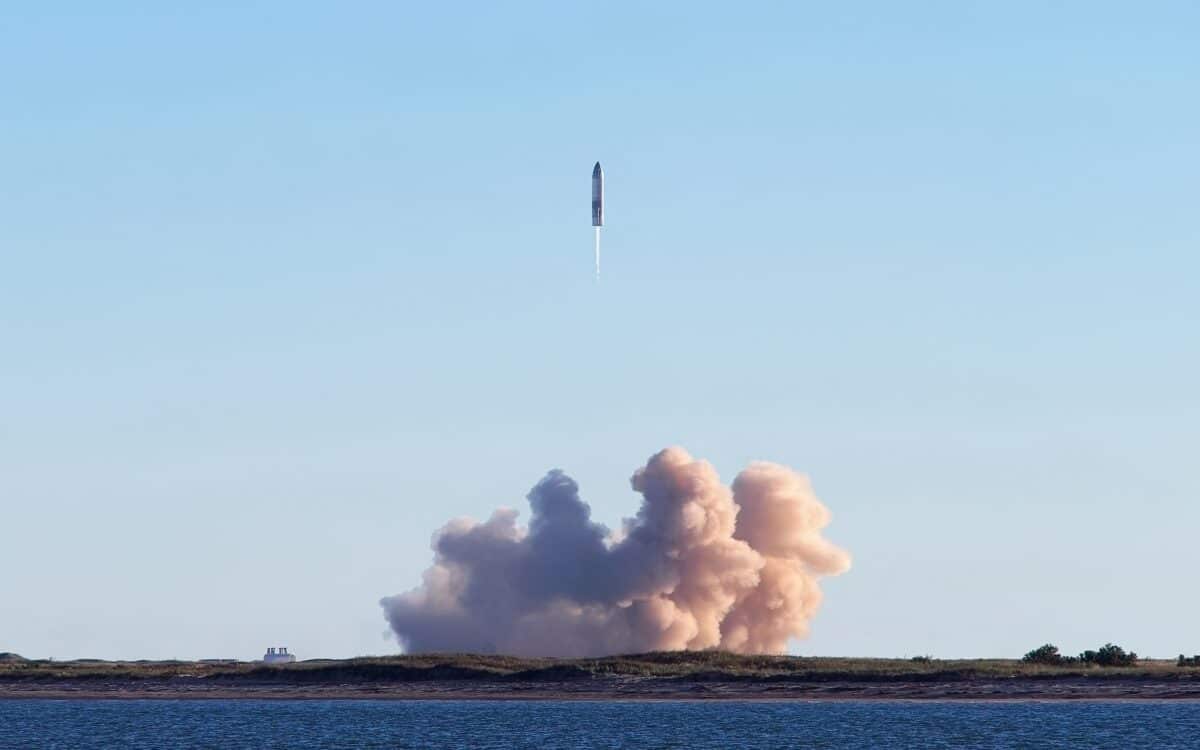
©Forest Katsch / CC BY-SA 4.0 – Original
After six years of development, SpaceX felt ready to test Starship in its first integrated flights. However, these trial runs for the most powerful rocket in the world have proven turbulent.
The first integrated flight test took place on April 20, 2023, following a canceled attempt just three days earlier. The spacecraft experienced multiple engine failures alongside its thrust control, causing it to rapidly spin in the air until ultimately disintegrating in space.
After submitting 63 corrective actions to the FAA, SpaceX prepared its second integrated launch for November 18, 2023. This time, the most powerful rocket in the world managed to launch with all 33 engines working properly. However, following the separation of the two stages, the booster exploded. The second stage also experienced a malfunction, losing telemetry and self-destructing.
SpaceX has to undergo the same process to launch a third time: submit its corrective action and await approval from the FAA. As of January 2024, Starship passed its Static Fire testing. The aerospace company is ready to launch as early as February 2024, pending the completion of the FAA’s investigation of the previous attempt.
#2: Long March 9 – 330,000 Lbs Payload
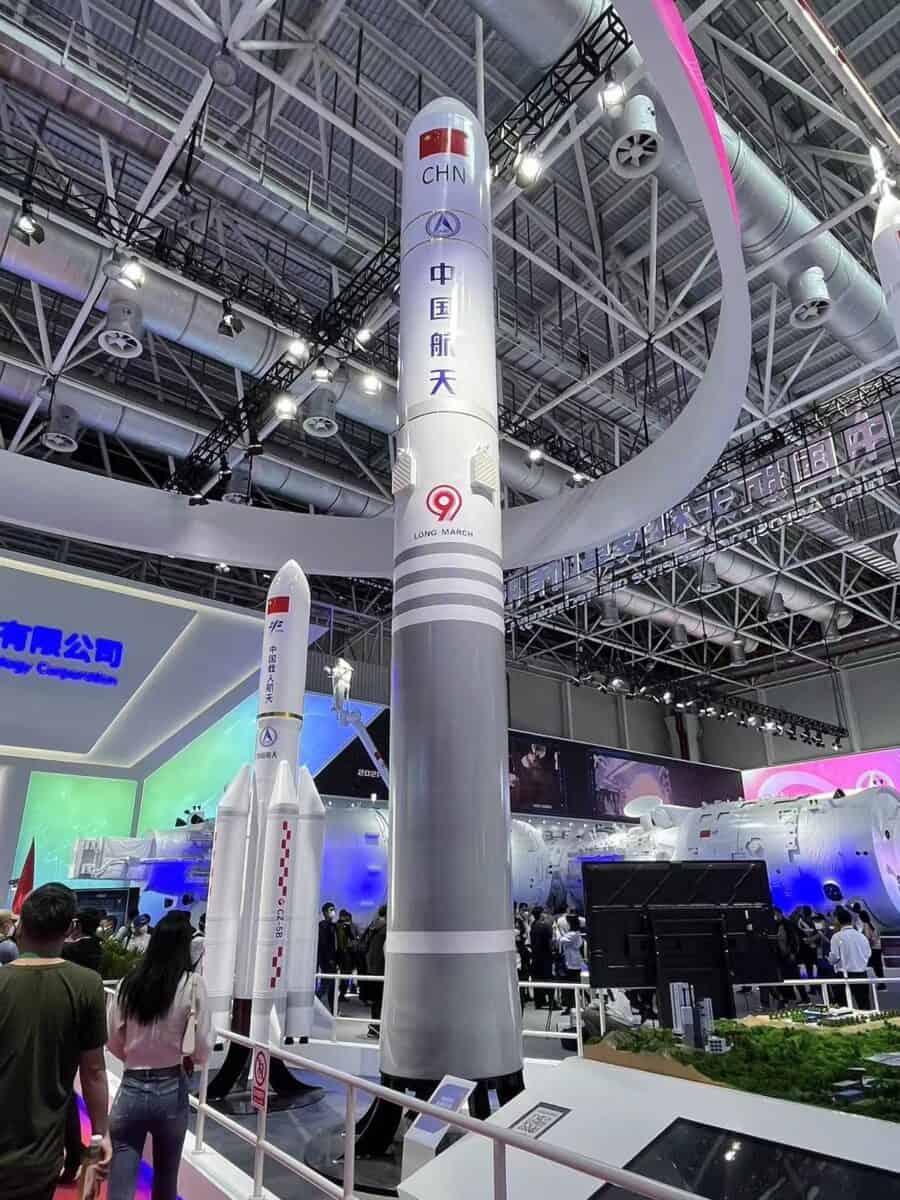
©Shujianyang / Public Domain CC0 1.0 Deed – Original / License
The Long March 9 is the latest Chinese rocket design of the Long March family of launch vehicles. The rocket is still in development, but already we’re seeing interesting alterations from American rockets. Instead of using external boosters, the Long March 9 features a single-core booster with massive, 120-ton engines.
The Chinese super-heavy launch vehicle will stand 374 feet tall and weigh nearly ten million pounds. The newest iteration is expected to have a payload capacity of between 308,000-330,000 pounds, in an attempt to match Starship. The Chinese intend to launch Long March 9 on its first flight by 2033.
#3: Saturn V – 310,000 Lbs Payload
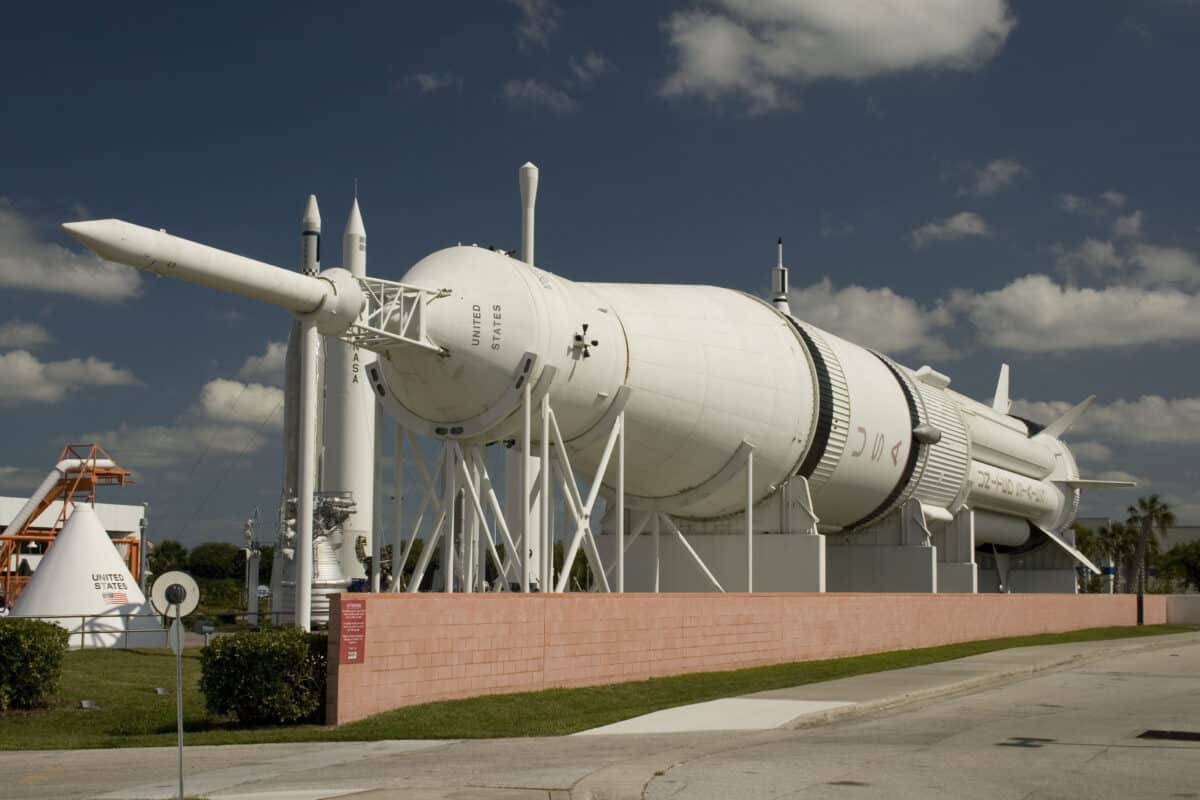
©Paul Harcourt/Shutterstock.com
No other launch vehicle in history can claim accomplishments on the level of the Saturn V. The rocket was a technological wonder; designed in 1969, it was larger and more powerful than anything ever created. And no design could match it for nearly 50 years, even after its retirement in 1973.
The Saturn V was designed to send humans to the moon, and it had the proportions for such a mission. The launch vehicle was 363 feet tall and weighed nearly 6.5 million pounds. Most impressive is its payload capacity; at 310,000 pounds, no other rocket has been able to deliver a payload of comparable size. Not even the SLS will have the power of the Saturn V, and its record will stand until SpaceX readies Starship for official flight.
#4: SLS (Space Launch System) – 300,000 Lbs Payload
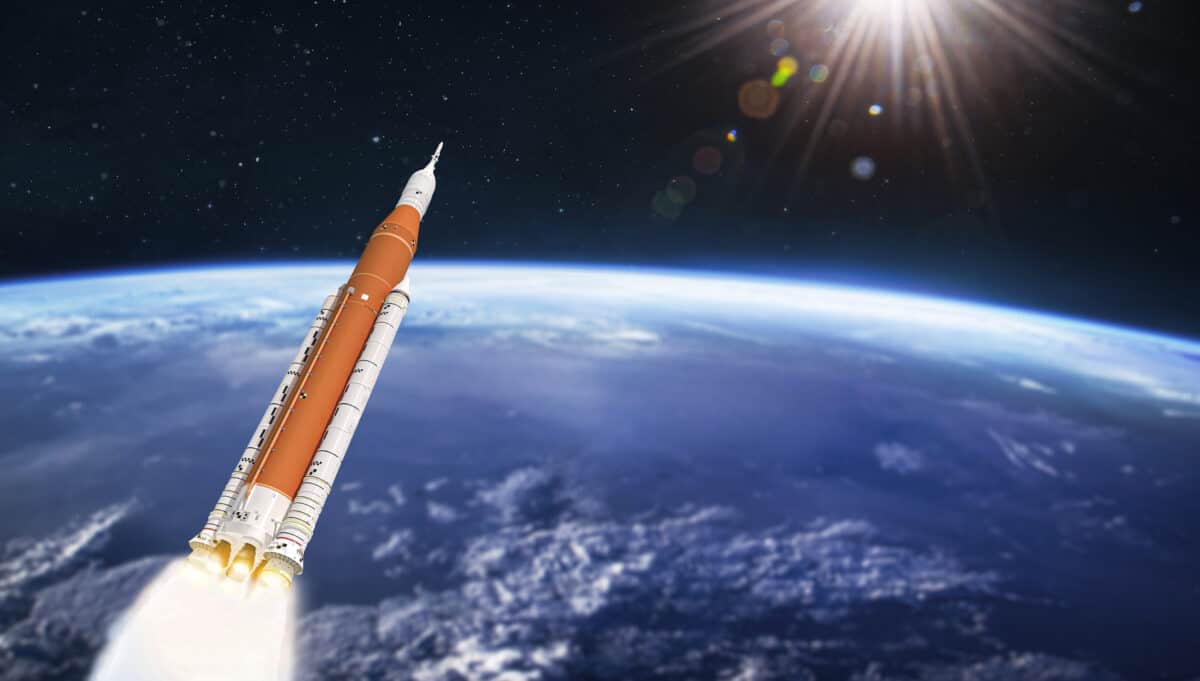
©Dima Zel/Shutterstock.com
With manned space missions made more feasible following the success of the Falcon Heavy, NASA announced the Artemis Program. The program was designed to send humans back into deep space. For that, NASA would need a new rocket built to keep space personnel safe. A collaboration of the United State’s prominent defense contractors revealed one of the most powerful rockets ever built, the Space Launch System.
This super-heavy launch vehicle stands 365 feet tall. It’s capable of carrying payloads of nearly 210,000 pounds to lower earth orbit, with an upper echelon of nearly 300,000 pounds. The rocket is designed to send astronauts to the moon to build a lunar base. However, this massive rocket has a hefty cost per launch, and its expendable nature leads to concerns for its future in the industry.
#5: Yenisei – 290,000 Lbs Payload
It’s been 25 years since we’ve seen Russia participate in spaceflight, but in 2018, the country announced its return. Just as SpaceX was preparing for its first Falcon Heavy test flight, the legacy contractor for Energia revealed its newest project: Yenisei. Although still in development, it will be Russia’s first super-heavy launch vehicle since the fall of the USSR.
Not much is known about the rocket, which only finished its technical design at the end of last year. However, we do know that the Yenisei will weigh around 6.8 million pounds and have a payload capacity of 100 tons. The Russian launch vehicle is ready for production and there are plans for a test launch by 2028.
#6: Energia 220,000 Lbs Payload
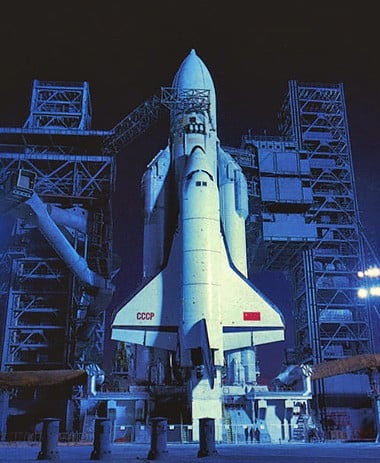
The N1’s cancellation was not the end of the Soviet Union’s attempts to dominate the space race. Following the incredible success of the US Space Shuttle, the USSR built a space plane of its own. However, the Buran spacecraft needed a super-heavy launch vehicle, which the Soviet Union did not have. So in 1987, the Energia was built for its first test flight.
Much shorter than its US competition, the Energia stood only 192 feet tall. Instead of utilizing a tall central booster and two strap-on boosters, the Soviet rocket had a medium core stage and four Zenit boosters. Finally, the Soviet Union had a rocket capable of launching massive payloads. Unfortunately, following the dissolution of the country, funding ran out and the Energia rocket was retired.
#7: Soviet N1 – 210,000 Lbs Payload
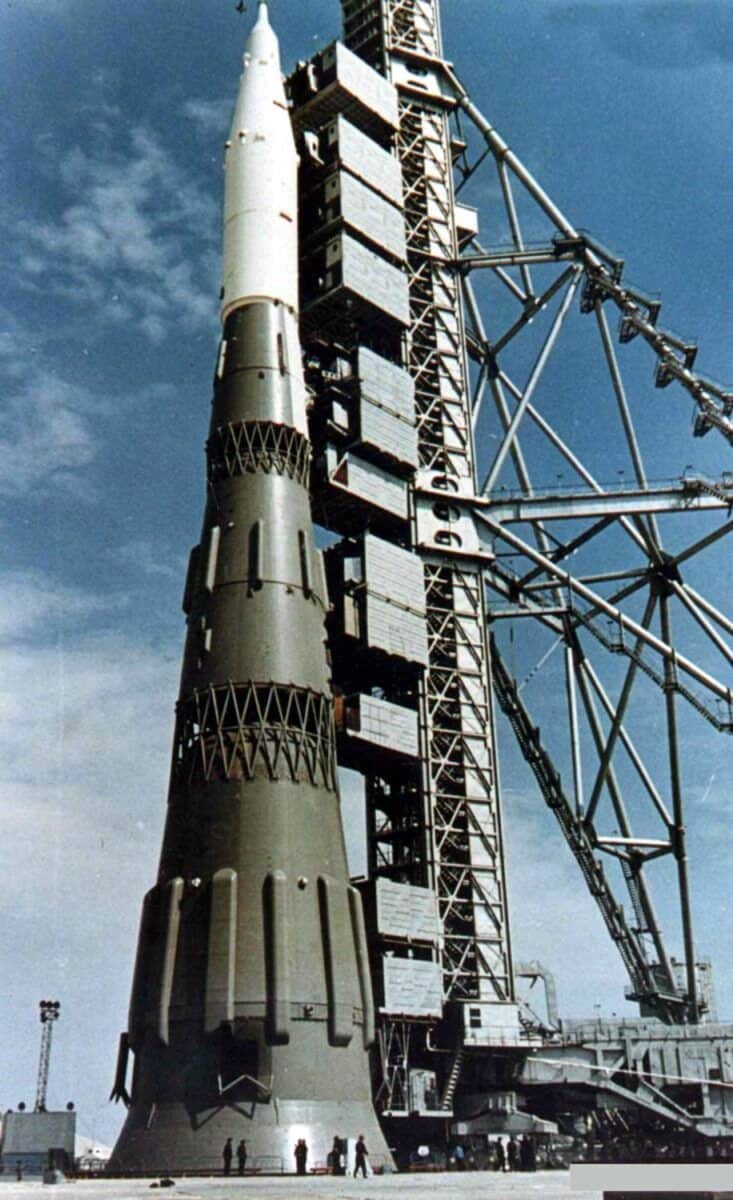
©National Reconnaissance Office / Public Domain CC0 1.0 Deed – Original / License
In 1962, John F Kennedy announced to the public that the United States would be the first country in history to land a man on the moon. It was the height of the Cold War and the Soviet Union rose to the challenge. While the US was hard at work designing what would be the most powerful rocket in the world, the USSR was building its own.
However, this was right about when the Soviet regime started to run out of thrust; by the time an underfunded rocket, named the N1, was ready for its first launch in 1969, it was apparent that the United States would win.
While the Soviet rocket was massive in structure, standing 345 feet tall, it was highly unstable. After four failed launch attempts, including one major crash shortly after liftoff, the project was suspended and ultimately canceled in 1976.
#8: Falcon Heavy – 141,000 Lbs Payload
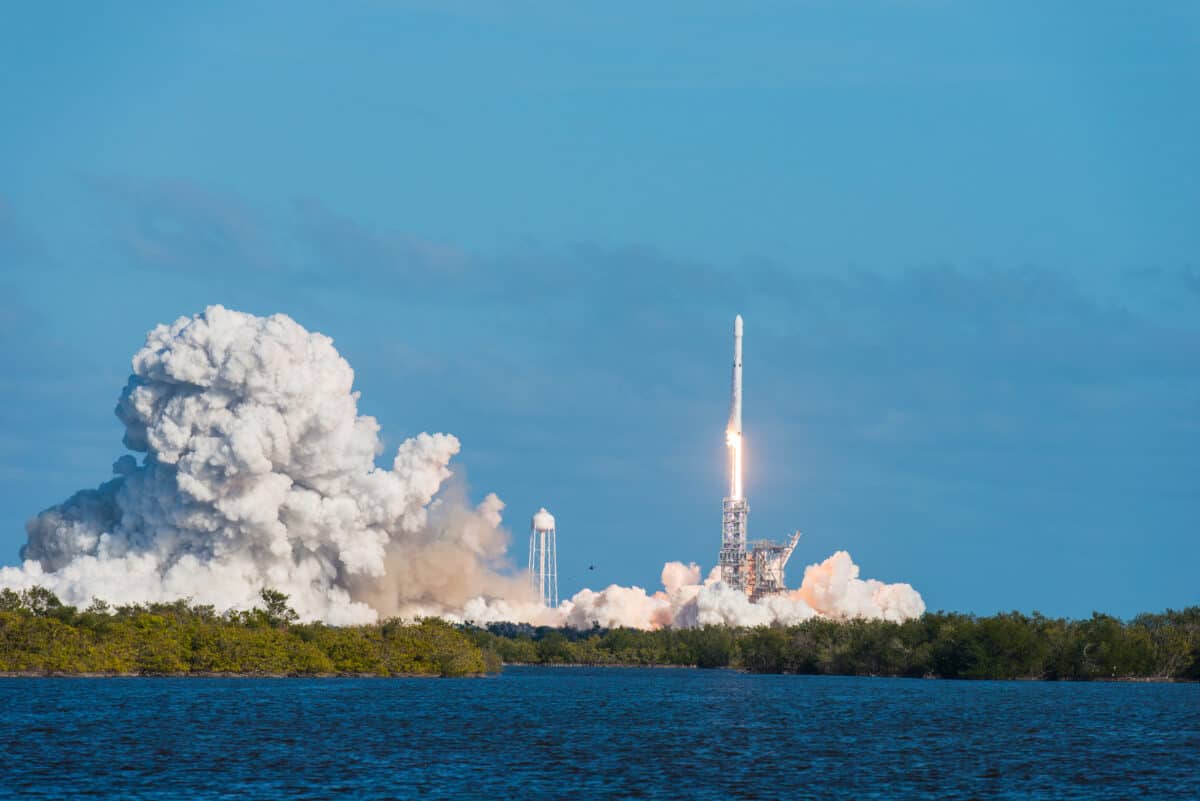
©Kent Weakley/Shutterstock.com
One of the major influencers for Delta IV Heavy’s retirement is one of the greatest advancements in spaceflight history. SpaceX’s Falcon Heavy is nearly the exact size of the ULAs heavy launch vehicle but with twice the capacity and half the launch price. Elon Musk first launched this rocket, which uses modified Falcon 9 components, in 2018.
The Falcon Heavy comes in at about 230 feet tall and weighs 3.1 million pounds. The rocket is rated for payloads as heavy as 141,000 pounds, but it’s also designed to carry passengers into deep space.
Following its overwhelming success with its first launch, SpaceX planned on using the rocket to send astronauts back to the moon. However, the company pivoted, turning its focus toward the much larger Starship project in our #1 spot.
#9: Delta IV Heavy – 63,000 Lbs Payload
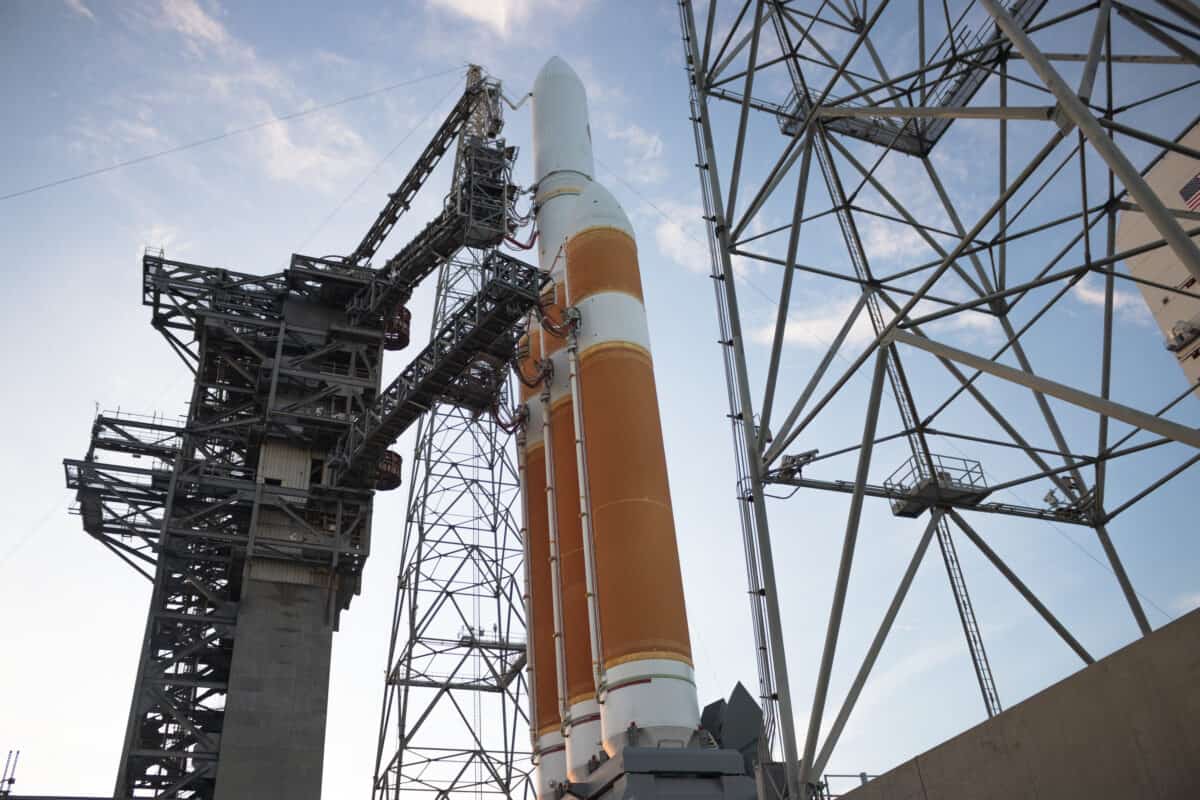
©rbale113/Shutterstock.com
Following the retirement of the United State’s largest rocket, the United Launch Alliance (ULA) built the Delta IV Heavy in 2004 to pick up its legacy. While not nearly as large, the rocket was easier to launch while still having the capability to carry heavy payloads. As it stands, the Delta IV is the second most powerful rocket in the world still in operation.
The heavy rocket stands 236 feet tall and weighs 1.6 million pounds. It has an LEO payload capacity of 63,000 pounds powered by a common booster core and two side boosters. The Delta IV is critical for launching the Orion spy satellites for the CIA. The ULA plans to retire the rocket in 2024.
#10: The Space Shuttle – 60,600 Lbs Payload
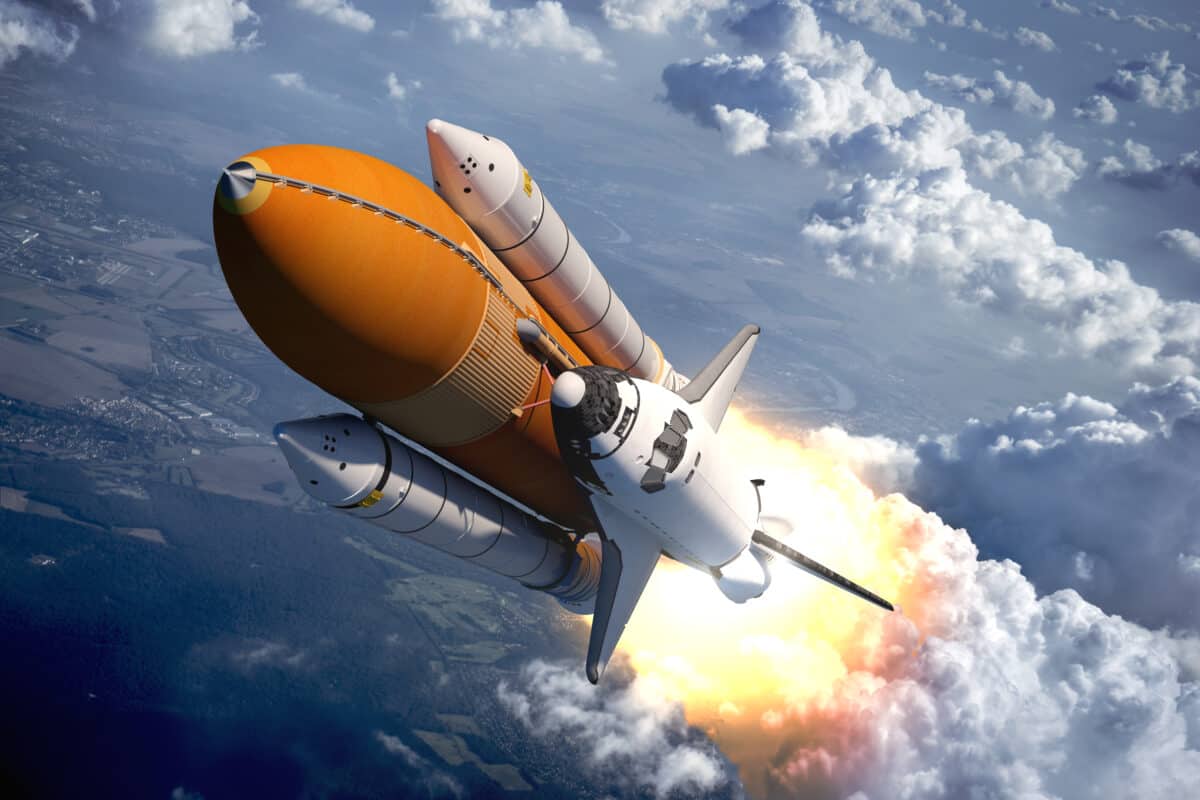
©3Dsculptor/Shutterstock.com
One of the most powerful rockets ever built was also one of the most relaunched vehicles in history. The United Launch Alliance (a coop between Lockheed Martin and Boeing) built the Space Shuttle launch system in 1981 to deliver personnel and materials to lower Earth orbit and the International Space Station. Throughout its lifetime, the Space Shuttle launched 135 missions.
To send a massive “space bus” into orbit, the Space Shuttle had to handle the weight. The rocket was 184 feet tall and weighed nearly 4.5 million pounds. With one of the largest external tanks and two solid rocket boosters, the Space Shuttle could carry 60,600 pounds to low Earth orbit (LEO). However, the program was retired in 2011 after two tragic failures, which resulted in the deaths of 14 American astronauts.
Summary of the Most Powerful Rocket in the World (Top 10)
| Rank | Payload Capacity |
|---|---|
| 1. Starship | 330,000 lbs |
| 2. Long March 9 | 330,000 lbs |
| 3. Saturn V | 310,000 lbs |
| 4. Space Launch System (SLS) | 300,000 lbs |
| 5. Yenisei | 290,000 lbs |
| 6. Energia | 220,000 lbs |
| 7. N1 | 210,000 lbs |
| 8. Falcon Heavy | 141,000 lbs |
| 9. Delta IV Heavy | 63,000 lbs |
| 10. The Space Shuttle | 60,000 lbs |
Most Powerful Rockets Ever Built: Further Reading
It’s been decades since we’ve seen space launch vehicles with super-heavy launch capabilities. For a closer look at some of the most powerful rockets ever built, check out these articles below.
- The 10 Largest Rockets Ever Built – As tall as some skyscrapers, these rockets are technological marvels.
- Discover the Largest Rocket in the World – No rocket in history has been able to match the size and power of this rocket. Here’s a closer look at what it could do.
- SpaceX’s Starship Rocket: Specs, Size, History, and More – SpaceX’s newest rocket is set to outclass the Saturn V.
- The 10 Largest Space and Exploration Companies in the World, and What They Do – A deep dive into the Companies that are Leading the spaceflight industry.
The image featured at the top of this post is ©Jared Krahn / CC BY-SA 4.0.
